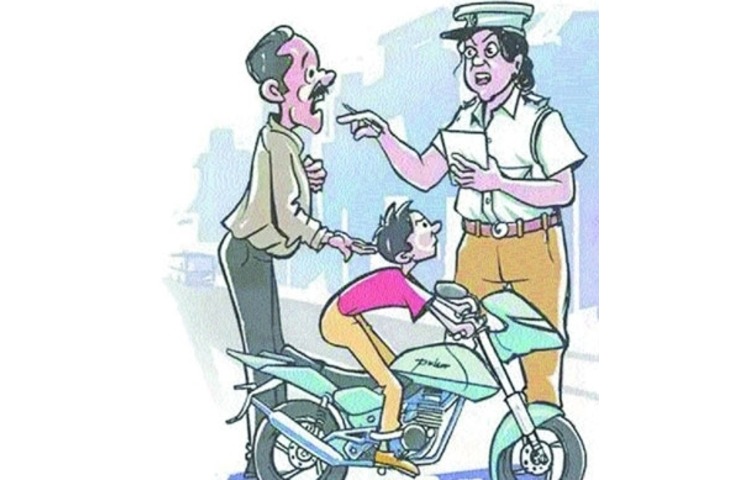“Kerala High Court Upholds Liability of Guardians and Vehicle Owners under Motor Vehicles Act for Minor Driving Offences”
June 26, 2024 2024-07-05 17:08“Kerala High Court Upholds Liability of Guardians and Vehicle Owners under Motor Vehicles Act for Minor Driving Offences”

“Kerala High Court Upholds Liability of Guardians and Vehicle Owners under Motor Vehicles Act for Minor Driving Offences”
By Shazia Siddiqui
In a recent ruling, the Kerala High Court reaffirmed the accountability of guardians and vehicle owners under Section 199A of the Motor Vehicles Act, 1988, highlighting their responsibility even when no charges are levied against minors for driving without a license. The case arose from a series of petitions challenging the initiation of legal proceedings against guardians or vehicle owners who allowed juveniles to drive in violation of the Act.
Previously, lower courts had dealt with similar cases, often grappling with the argument that charges against minors were a prerequisite for prosecuting guardians or vehicle owners. The Kerala High Court, however, clarified that Section 199A operates independently from other legal provisions that address the actions of minors directly.
The Court’s decision stems from its recognition of the increasing incidence of accidents involving underage drivers, which often lead to severe injuries or fatalities. The Court observed that the problem has been exacerbated by a lack of sufficient preventive measures from vehicle owners and guardians, noting that minors often exploit their perceived immunity from prosecution to engage in reckless driving. This lack of accountability, the Court emphasized, poses significant risks not only to the minors themselves but also to the public.
Key takeaways from the Court’s deliberation include:
- Independence of Offence: The Court underscored that Section 199A is a distinct provision under the MV Act, designed to address the negligence of guardians or vehicle owners independently of the minor’s prosecution.
- Initiation of Proceedings: Legal action against guardians or owners can begin based on recorded evidence of the minor’s offence, supported by a Social Background Report (SBR) without undue delay.
- Timeliness of Reports: The final report regarding the minor’s actions should ideally be submitted to the Juvenile Justice Board (JJB) within two months of the incident being recorded, although this timeline is flexible rather than strictly enforced.
- Trial Procedure: The inquiry into the minor’s conduct should follow the protocol for petty offences as outlined in the Criminal Procedure Code (CrPC).
- Completion of Inquiry: The JJB should conclude its inquiry within four months of the initial hearing date, with a possible extension of up to two months if necessary.
- Outcome Determination: If the JJB finds that the minor did not commit the offence or decides to terminate the proceedings, the case against the guardians or vehicle owners under Section 199A cannot proceed, leading to their acquittal or discharge.
In rejecting the petitions, the Court highlighted that the intent behind Section 199A is to impose an affirmative duty on guardians and vehicle owners to prevent minors from driving without a license. The Court elucidated that this provision creates a unique criminal offence where the culpability lies in the act of allowing or enabling a juvenile to access a vehicle, despite knowing they are unfit to drive.
The ruling emphasizes the broader principle of accountability, indicating that the negligent behavior of guardians or vehicle owners—by permitting minors to drive—constitutes a criminal offence in itself. The Court asserted that even in the absence of charges against the minor, guardians and vehicle owners must face consequences for their role in facilitating these unlawful acts. Consequently, the Court dismissed the petitions, reinforcing the need for stringent adherence to legal responsibilities to ensure public safety.
Case Title: Sharafudheen v. State of Kerala & Ors and Connected Cases
Neutral Citation: 2024:KER:44617









